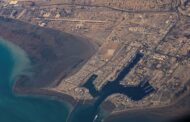Welcome to the 36th episode of our #MyEnergyLife series, a weekly feature on LinkedIn dedicated to highlighting, engaging with, and empowering emerging energy professionals across Africa. Through this ongoing series of articles, our goal is to explore the diverse career opportunities available within the energy sector while providing valuable insights and guidance to support the career aspirations of young professionals in this dynamic field.
In this episode, we meet Temitope Omowumi , an Advisor and Electrification Planner at GIZ Nigeria. Temitope Omowumi shares his story of how he got started in the energy industry, detailing his initial challenges and offering invaluable advice to fellow young professionals seeking their path in this dynamic industry.
Full Name
Current Company Name
Deutsche Gesellschaft für Internationale Zusammenarbeit (GIZ) GmbH
Current Job Title
Advisor, Electrification Planning
Specialization
Planning , Design and Modelling
Country of Origin
Nigeria
Tell us about your journey in the energy industry.
Ever since I was introduced to the concept of renewable energy during my junior secondary school “Intro Tech” class, I’ve been captivated by the idea of sustainable energy that I initially imagined would mean free electricity without NEPA bills. Additionally, my fascination and talent for Geography and Mapping date back to my elementary school years. This passion led me to pursue a degree in Civil Engineering, initially focusing on traditional brick and mortar road construction.
During my undergraduate studies, I began exploring the intersection of civil engineering and geography, discovering that Geographic Information Systems (GIS) provided the perfect fusion of these disciplines. This realization propelled me into the realm of Geospatial Engineering, specifically focusing on planning and design. My central question became: how do we bake sustainability and renewable energy into Infrastructures?
My career journey evolved further when I ventured into the telecom industry, where I specialized in planning and designing efficient infrastructure to deliver reliable high-speed connectivity. Over time, the importance of incorporating renewable energy solutions into these projects became increasingly apparent.
After working with four different Telecom EPC companies over six years, I transitioned to the energy sector in 2018. That year, I assumed my current role as a National Advisor on Electrification Planning with the Nigeria Energy Support Programme of GIZ Nigeria & ECOWAS , where I serve as a Technical Advisor for Electrification Planning. This position allows me to pursue my passion for integrating renewable energy into infrastructure development on a national scale.
What do you do in your current role at your company?
As a Technical Advisor for Electrification Planning at the Nigerian Energy Support Programme (NESP) of GIZ Nigeria & ECOWAS , I am responsible for providing expert guidance to the Federal Ministry of Power, Rural Electrification Agency (REA), and other relevant institutions and agencies on electrification planning, with a focus on renewable energies. I developed and implemented a framework that allows for data gathering (using a survey methodology commonly agreed with all partners), GIS-based data management, least-cost modeling, as well as data visualization in view to help the government attain its electrification targets and attract private investment into the power sector.
Could you describe your typical day at work?
My typical day is dynamic and diverse, filled with a range of activities. It can include project catch-up meetings with my team and partners, engaging in technical sessions, feature demonstrations, participating in workshops and events. I also spend time both in the field and at my desk, analyzing large datasets, creating maps, and even writing code. My day is always filled, interesting and rewarding.
“There is something new almost every day, so it never gets boring.”
What are some of the challenges you have faced in the industry?
The area I focus on involves leveraging data for insights and informed decision-making. Unfortunately, this field isn’t yet mainstream, and many initiatives and projects continue to operate without the benefit of data-backed insights. Additionally, a key challenge lies in the sector’s limited access to data and digital know-how.
What is the most fun thing you love about your work?
Developing innovative solutions to providing sustainable infrastructure. Also, as a mild geek, getting to play with the latest tools and technology is also quite fun.
How do you balance work and life?
I try, even though I must admit I fail in this respect. I work long hours and I’m also nocturnal. Modern work setups can be quite sticky and invasive due to the ability to work remotely and on the go. I try to make time for my family, which I believe should not suffer. I have interests and things that I enjoy that are not work related and I make time to catch up on them. But to be frank in this regard, It’s a work in progress to strike the right balance.
What are the core hard skills someone in your field should have?
Professionals in my field must possess core engineering skills and the ability to develop innovative solutions for complex problems. Moreover, expertise in GeoSpatial Analysis is indispensable, alongside strong data management abilities encompassing verification, quality control, transformation, modeling, and knowledge of computer programming.
What soft skills should someone in your field have?
When considering soft skills, several key ones stand out: effective communication, problem-solving, time management, teamwork, adaptability, and a commitment to continuous learning.
What is the best thing about your work?
There is something new almost every day, so it never gets boring.
What would you consider a highlight of your career?
Developing the Geospatial Electricity Planning platform for Nigeria through the Ministry of Power has been a remarkable achievement for me. It began with drafting the terms of reference in 2018, followed by registering the domain with the Nigeria Internet Registration Association (NiRA), and ultimately led to the platform’s launch by the Minister of Power nearly four years later. This journey has been intense—I’ve acquired grey hairs and even started wearing recommended glasses during this period. It stands as a significant milestone in my career, one that fills me with immense pride.
“Newcomers entering the field should focus on mastering fundamental principles during their initial years, as this makes all the difference down the line.”
What are you passionate about outside of work?
Current Affairs and Geopolitics, Economics, Music, Movies & TV Series, Football Tactics and Gaming.
How do you think that your work makes a difference in the energy space?
The work I do is fundamental and critical for the success of energy infrastructure projects. As the saying goes, if one fails to plan, then plans to fail. Ensuring precision from the start significantly influences the long-term sustainability and effectiveness of projects, both from a technical-economic and societal perspective.
What advice do you have for someone new to the industry?
Newcomers entering the field should focus on mastering fundamental principles during their initial years, as this makes all the difference down the line. It’s beneficial to begin in an environment that offers broad exposure and hands-on experience. In essence, taking on responsibilities early builds the technical and mental muscles required for success in this line of work. Don’t be fancy but be pragmatic!
If you enjoyed reading this, do not hesitate to follow theenergy.africa
See you in the next article!













